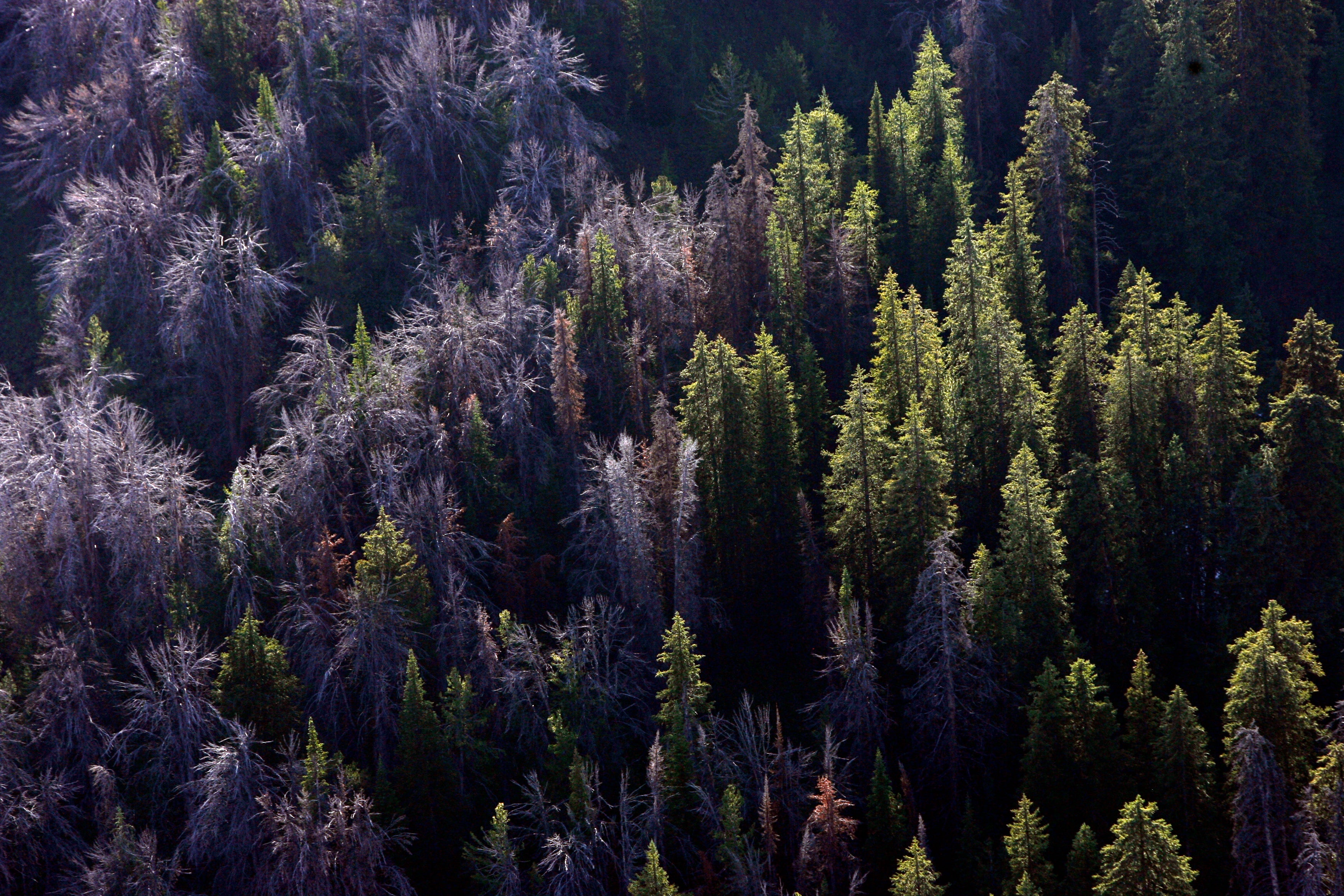US: mountain pine tree that feeds grizzlies is threatened
US officials say climate change, beetles and a deadly fungus are imperiling the long-term survival of a high-elevation pine tree that's a key source of food for some threatened grizzly bears

Your support helps us to tell the story
From reproductive rights to climate change to Big Tech, The Independent is on the ground when the story is developing. Whether it's investigating the financials of Elon Musk's pro-Trump PAC or producing our latest documentary, 'The A Word', which shines a light on the American women fighting for reproductive rights, we know how important it is to parse out the facts from the messaging.
At such a critical moment in US history, we need reporters on the ground. Your donation allows us to keep sending journalists to speak to both sides of the story.
The Independent is trusted by Americans across the entire political spectrum. And unlike many other quality news outlets, we choose not to lock Americans out of our reporting and analysis with paywalls. We believe quality journalism should be available to everyone, paid for by those who can afford it.
Your support makes all the difference.Climate change, voracious beetles and disease are imperiling the long-term survival of a high-elevation pine tree that's a key source of food for some grizzly bears and found across the U.S. West, U.S. officials said Tuesday.
A Fish and Wildlife Service proposal scheduled to be published Wednesday would protect the whitebark pine tree as a threatened species under the Endangered Species Act, according to documents posted by the Office of the Federal Register.
But the agency said it doesn't plan to designate which forested areas are critical to the tree's survival, stopping short of what some environmentalists argue is needed.
The trees can live up to 1,000 years and are found at elevations up to 12,000 feet (3,600 meters) — conditions too harsh for most tress to survive.
Environmentalists had petitioned the government in 2008 to protect the trees that grow in Wyoming, Montana, Idaho, Washington, Oregon, California, Nevada and western Canada.
They’ve been all but wiped out in some areas, including the eastern edge of Yellowstone National Park, where they are a source of food for threatened grizzly bears.
Grizzlies raid squirrel caches of whitebark pine cones and devour the seeds within the cones to fatten up for winter.
A nonnative fungus has been killing whitebark pines for a century. More recently, the trees have proven vulnerable to bark beetles that have killed millions of acres of forest and climate change that scientific studies have said are responsible for more severe wildfire seasons.
The government’s proposal described the threats to the trees as “imminent” and said whitebark was one of many plants expected to be impacted as climate change moves faster than they are able to adapt.
“Whitebark pine survives at high elevations already, so there is little remaining habitat in many areas for the species to migrate to higher elevations in response to warmer temperatures," Fish and Wildlife Service officials wrote.
The officials added: “Overall, whitebark pine stands have seen severe reductions in reproduction and regeneration...High severity wildfires, white pine blister rust, and mountain pine beetle all act on portions of whitebark pine’s range."
An attorney with the Natural Resources Defense Council, which submitted the 2008 petition for protections, lamented that it took so long for the government to act but said the proposal was still worth celebrating.
“This is the federal government admitting that climate change is killing off a widely-distributed tree, and we know that's just the tip of the iceberg. There are many species threatened," said Rebecca Riley, legal director for the environmental group's nature program.
___
On Twitter, follow Brown @MatthewBrownAP